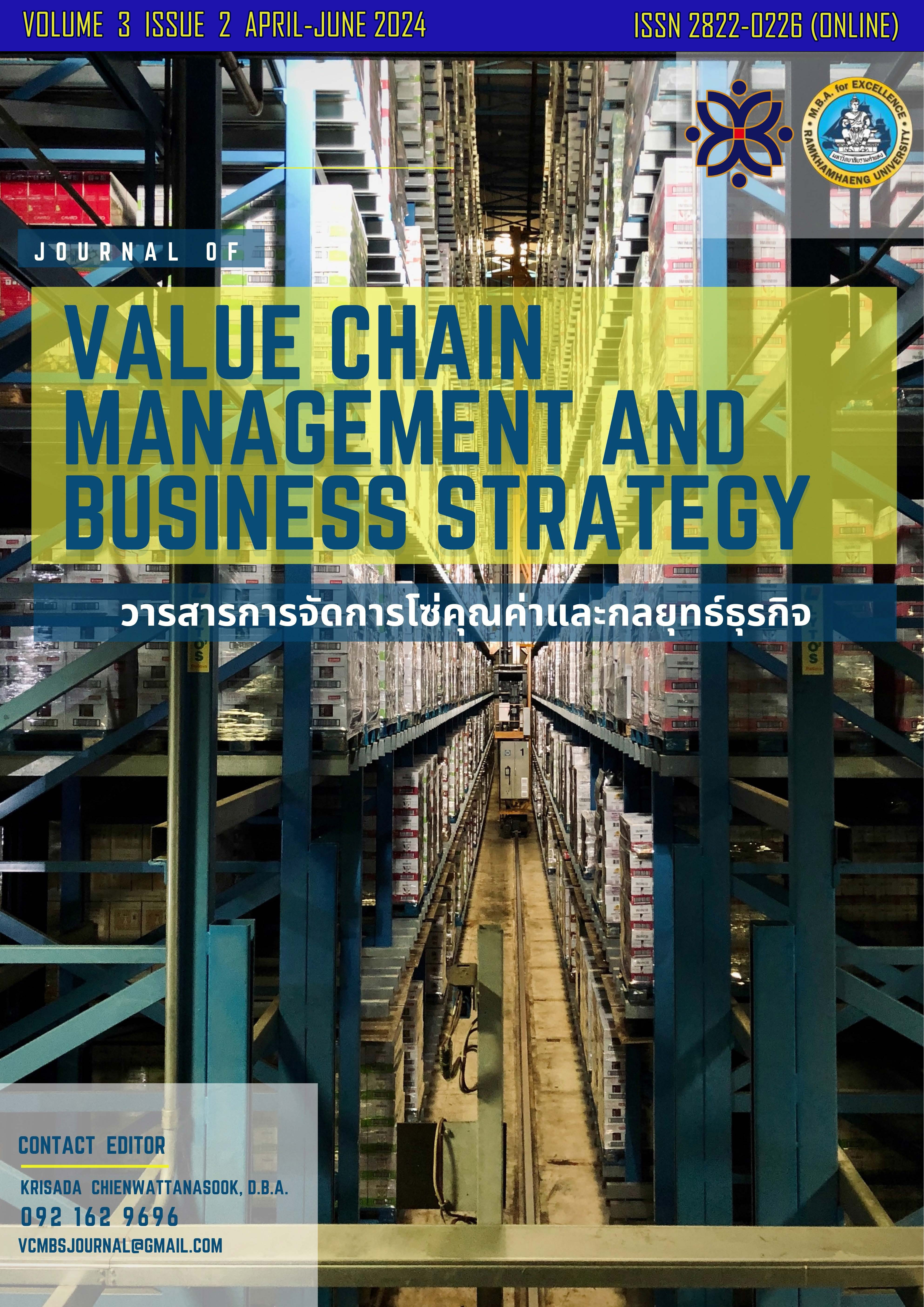PRINCIPLES OF HUMAN RESOURCE DEVELOPMENT IN BASIC NEGOTIATION TRAINING FOR EFFECTIVE CONFLICT MANAGEMENT
Keywords:
Human Resource Development, Training, Negotiation, Conflict ManagementAbstract
This article aims to illustrate the principles of human resource development in basic negotiation training and the application of these principles to conflict management in organizations through a review of the literature and previous research. Negotiation training helps reduce conflict and promotes teamwork, with a focus on maximizing organizational benefits. It also enhances individual negotiation skills outside the organization to improve efficiency and success in various situations. HR development should focus on systematic negotiation training with clear objectives and a thorough needs analysis for participants. The development of content and training processes should be tailored to the context and needs of the organization, including continuous monitoring and evaluation to improve the effectiveness of the training. In addition, training should focus on the practical application of negotiation skills in real-life situations so that participants can use these skills in both professional and everyday life. Therefore, organizations should continuously promote negotiation training and conflict management skills at all levels to create a coherent and efficient organizational culture.
References
เกียรติศักดิ์ วัฒนศักดิ์. (2553). การเจรจาต่อรอง. วารสารนักบริหาร, 30(1), 74-79.
ชาตรี สุขสบาย. (2566). กรอบแนวทางการศึกษาการพัฒนาคนสู่ยุทธศาสตร์การพัฒนาทรัพยากรมนุษย์. วารสารสหวิทยาการนวัตกรรมปริทรรศน์, 6(6), 327-341.
ชูชัย สมิทธิไกร. (2554). การฝึกอบรมบุคลากรในองค์การ (พิมพ์ครั้งที่ 7). โรงพิมพ์แห่งจุฬาลงกรณ์มหาวิทยาลัย.
โชติชวัล ฟูกิจกาญจน์. (2559). การพัฒนาทรัพยากรมนุษย์. ซีเอ็ดยูเคชั่น.
ฐิติทัตน์ นิพนธ์พิทยา. (2561). การเจรจาต่อรองในการบริหารจัดการภาครัฐ. วารสารวิจยวิชาการ, 1(2), 137-153.
ดุสิต ขาวเหลือง. (2554). การฝึกอบรมที่มีประสิทธิภาพและสมรรถนะ. วารสารการศึกษาและพัฒนาสังคม, 7(1), 18-32.
ธนัสถา โรจนตระกูล. (2562). การจัดการความขัดแย้งเชิงสร้างสรรค์. วารสารวิชาการ คณะมนุษยศาสตร์และสังคมศาสตร์ มหาวิทยาลัยราชภัฏนครสวรรค์, 6(2), 69-83.
ธีรพันธ์ เชิญรัมย์. (2563). องค์การแห่งการเรียนรู้: การเรียนรู้จากการปฏิบัติ. วารสารวิจยวิชาการ, 3(1), 185-196.
ปวริศ อนุสรณ์พานิช. (2566). เอกสารประกอบการบรรยายรายวิชา บธ.366402 เทคนิคการเจรจาต่อรองทางธุรกิจการบิน. คณะบริหารธุรกิจ มหาวิทยาลัยเกริก.
ภวิศา โชติธนาวรรธ. (2565). การจัดการความขัดแย้งและการระงับข้อพิพาทด้วยวิธีการเจรจาต่อรอง. วารสารกฎหมายและสังคมรังสิต, 4(3), 46-57.
ไมเคิล วัตกินส์. (2566). Negotiation [กลยุทธ์การเจรจาต่อรอง] (ไพโรจน์ บาลัน, ผู้แปล). เอ็กซเปอร์เน็ท.
วรรณวิมล อัมรินทร์นุเคราะห์. (2562). การจัดการเปลี่ยนแปลงและการพัฒนาองค์การ (พิมพ์ครั้งที่ 3). สำนักพิมพ์มหาวิทยาลัยรามคำแหง.
วัชราภรณ์ บุญญศิริวัฒน์. (2563). การเจรจาต่อรองอย่างมีประสิทธิภาพ. https://www.psy.chula.ac.th/th/feature-articles/negotiation/
ศรีเสด็จ กองแกน. (2566). การจัดการความขัดแย้ง. วารสารส่งเสริมและพัฒนาวิชาการสมัยใหม่, 1(2), 36-49.
สถาบันเพิ่มผลผลิตแห่งชาติ. (2558). Unlock Productivity Lesson. https://www.ftpi.or.th/2015/2829
สมชาติ กิจยรรยง. (2560). เกมและกิจกรรมนันทนาการเพื่อการพัฒนาคนและองค์กร (พิมพ์ครั้งที่ 20). สมาร์ท ไลฟ์.
สาริศา เจนเขว้า. (2563). ทางเลือกการจัดการความขัดแย้งในองค์กร. วารสารการบริหารนิติบุคคลและนวัตกรรมท้องถิ่น, 6(2), 229-240.
อนันต์ บุญสนอง. (2555). การจัดการทรัพยากรมนุษย์: ทฤษฎีนำมาสู่การปฏิบัติ (พิมพ์ครั้งที่ 2). ทีเอส.
อนิวัช แก้วจำนงค์. (2552). การจัดการทรัพยากรมนุษย์. บริษัท นำศิลป์ โฆษณา จำกัด.
อโนทัย ผลิตนนท์เกียรติ. (2562). ประสบการณ์: การเจรจาต่อรองและการจัดการความขัดแย้ง เพื่อลดความขัดแย้งในระบบการให้บริการสุขภาพและสาธารณสุข. วารสารเครือข่ายวิทยาลัยพยาบาลและการสาธารณสุขภาคใต้, 6(3), 158-164.
เอกสิทธิ์ สนามทอง (2564). เทคนิคการวางแผนอาชีพและการพัฒนาบุคลากร (พิมพ์ครั้งที่ 3). สำนักพิมพ์มหาวิทยาลัยรามคำแหง.
Abiodun, A. R. (2014). Organizational conflicts: Causes, effects and remedies. International journal of academic research in economics and management sciences, 3(6), 118.
Al-Enazi, M. N. K., Almutairi, N. B., Almutairi, S. S., & Alshammari, N. K. (2022). The Impact of Internal Organizational Environment Factors on the Efficiency of Health. Saudi Journal of Business and Management Studies, 7(10), 296-300.
Bear, J. B., Weingart, L. R., & Todorova, G. (2014). Gender and the emotional experience of relationship conflict: The differential effectiveness of avoidant conflict management. Negotiation and Conflict Management Research, 7(4), 213-231.
Carrell, M. R., & Heavrin, C. (2008). Negotiating Essentials: Theory, Skills, and Practices. Pearson.
Clarke, T. (2019). The greening of the corporation. Oxford University Press.
Dahiya, M., Warne, D. P., & Arora, S. (2023). Theory and Concept of Human Resources Development. In Strategic Human Resource Management in the Hospitality Industry: A Digitalized Economic Paradigm (pp. 232-254). IGI Global.
Ebrahim, E. K. (2020). Negotiation as a management strategy for conflict resolution and its effect on enhancing collaboration between nurses and physicians. Egyptian Nursing Journal, 17(1), 13-22.
Fisher, R., Ury, W., & Patton, B. (2011). Getting to Yes: Negotiating Agreement Without Giving In. Penguin Books.
Inayaturrahmah, R., Barkah, C. S., & Novel, N. J. A. (2022). Analysis the role of negotiation as communication skills in conflict management. JBTI: Jurnal Bisnis: Teori dan Implementasi, 13(3), 217-227.
Jaas, A. (2022). The essence of human resources management. Journal of Advance Research in Business Management and Accounting, 8(1), 1-9.
Kashyap, S. (2022). Conflict and negotiation process in the organization. International Journal of Scientific Research in Engineering and Management, 6(5), 1-6.
Kavadze, V. (2022). Causes of organizational conflicts. Economics, 105(3), 338-344.
Korobkin, Russell. (2024). Negotiation theory and strategy. Aspen Publishing.
Lauer, T., & Lauer, T. (2021). Triggers of corporate change. Change Management: Fundamentals and Success Factors, 13-28.
Lewicki, R. J., Barry, B., & Saunders, D. M. (2015). Negotiation. McGraw-Hill Education.
Lionel, L. K. G., Channuwong, S., & Wongmajarapinya, K. (2023). Human resource management and organizational performance. Int. J. of Adv. Res, 11(May), 872-881.
Mamaqi, E. (2023). The Role of Trainings in the Development and Enhancement of Work Performance in the Public and Private Sector. Interdisciplinary Journal of Research and Development, 10(1 S1), 107-107.
Mamatoğlu, N., & Keskin, S. (2019). Effective conflict resolution and negotiation skills scale. Hacettepe Üniversitesi Edebiyat Fakültesi Dergisi, 36(1), 133-149.
Movius, H. (2008). The effectiveness of negotiation training. Negotiation Journal, 24(4), 509-531.
Munduate, L., Medina, F. J., & Euwema, M. C. (2022). Mediation: Understanding a constructive conflict management tool in the workplace. Revista de Psicología del Trabajo y de las Organizaciones, 38(3), 165-173.
Muriuki, C. (2012). Conflict Management and Conflict Resolution. Journal of Developing Country Studies, 1(1), 25-36.
Nadler, J., Thompson, L., & Van Boven, L. (2003). Learning Negotiation Skills: Four Models of Knowledge Creation and Transfer. Management Science, 49(4), 529-540.
Prietula, M. J., & Weingart, L. R. (2011). Negotiation offers and the search for agreement. Negotiation and Conflict Management Research, 4(2), 77-109.
Proksch, S. (2016). Conflict management. Springer.
Raymond., A., N. (2010). Employee Training and Development (5th ed.). McGrawHill.
Shell, G. R. (2006). Bargaining for Advantage: Negotiation Strategies for Reasonable People. Penguin Books.
Tabassum, L. (2020). The importance of negotiation and conflict management. Journal of Management and Science, 12(2020), 15-19.
Thompson, L. (2012). The Mind and Heart of the Negotiator. Pearson.
Wu, Z. (2023). Developmental Human Resource Management Practices: Literature Review and Prospect. In SHS Web of Conferences (Vol. 165, p. 02020). EDP Sciences.
Downloads
Published
How to Cite
Issue
Section
License
Copyright (c) 2024 Journal of Value Chain Management and Business Strategy

This work is licensed under a Creative Commons Attribution-NonCommercial-NoDerivatives 4.0 International License.




